Understanding Detention E-learning Course
This course, originally developed by the ICRC for its own delegates, provides users with a basic understanding of what happens when people are deprived of their liberty. It covers the various forms …
This course, originally developed by the ICRC for its own delegates, provides users with a basic understanding of what happens when people are deprived of their liberty. It covers the various forms …

Imagine a humanitarian convoy made up of hundreds of tonnes of rice travelling from one country to another- 2500 miles apart-for the benefit of people in need. That was the case recently when the …
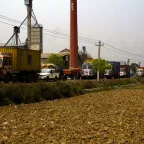
Internationally, the number of people being injured by landmines is falling. But in some countries, new mines are being laid. Those countries include Iraq. The thousands of men, women and children …
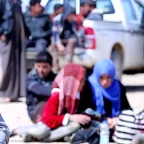
By Helen Durham, director of International Law and Policy, ICRC Nearly 20 years have passed since the Ottawa Treaty came into being, banning anti-personnel landmines. This important piece of …
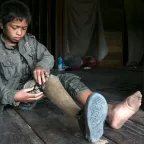
03-04-2016 The International Committee of the Red Cross (ICRC) is concerned about the humanitarian impact of fighting along the line of contact in Nagorno-Karabakh, which seriously deteriorated on 2 …
01-04-2016 Port-au-Prince (ICRC) - In cooperation with the national prison service, the International Committee of the Red Cross (ICRC) has recently finished building a wing for juvenile detainees at …
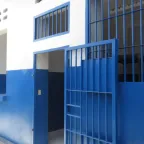
From air dropping food in remote areas to reuniting families separated by conflict, see how we help people in South Sudan. See also: South Sudan: Displaced by conflict, struggling with hunger - …
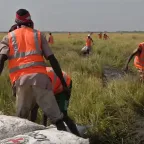
I'm eight years old. Ten months ago, my parents disappeared. Now my brothers and I are going back to our home town, Lubumbashi, to live with our uncle, our dad's big brother. Due to the conflict in …

Political uncertainty in Haiti in 2015 had an impact on social and economic conditions in the country. The ICRC's activities in Haiti in 2015: Some 10,000 detainees obtained better access to health …
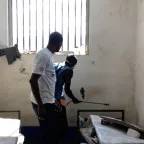
For the residents of Adi Ashker – a small village in Eritrea of 1,000 people - livestock means everything. The community's ability to survive largely depends on the well-being of their sheep, goats …
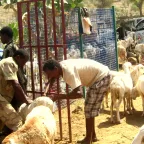
Try one of the following resources:
Created in 1863, the ICRC library, alongside the ICRC archives, provides an indispensable documentary reference on the organization itself and international humanitarian law.
International humanitarian law is based on a number of treaties, in particular the Geneva Conventions of 1949 and their Additional Protocols, and a series of other instruments.
Customary international humanitarian law consists of rules that come from "a general practice accepted as law" and that exist independent of treaty law.